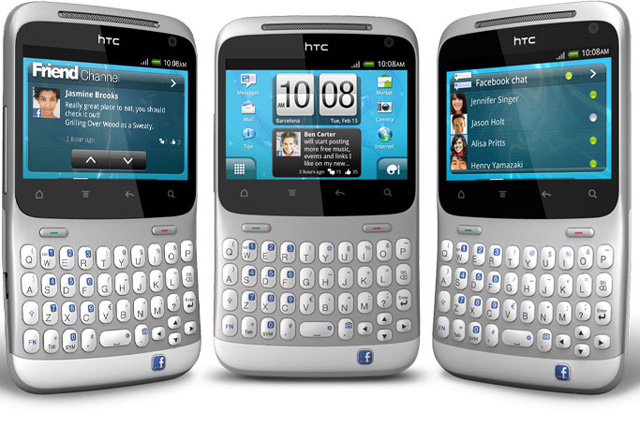HTC has begun to falter as Samsung and Apple strengthen their stranglehold on the smartphone industry.
The Taiwanese manufacturer posted a sales drop of 22% from the third to the fourth quarter of last year, and has said it expects another significant quarterly fall in the first three months of this year.
HTC's fortunes have suffered of late after its devices based on its fourth-generation LTE network failed to gain traction in the key US market.
Sales of these handsets, which allow faster data streaming, have proved unpopular due to their comparatively short battery life.
HTC is banking on regaining its former strong standing in the market in the middle of this year, predicated on the successful launch of a long-awaited flagship device.
The Endeavour handset, which will use the Android operating system, is expected to contain a range of new features that will make it a more potent rival to the Apple iPhone 5 and Samsung Galaxy S3, also widely expected to be released in 2012.
HTC also faces a battle on a second front, against low-end Chinese manufacturers such as ZTE and Huawei.
As a result, it is now believed to be weighing up the merits of releasing fewer handsets and focusing on 'hero' devices.
The company recently began branching out by launching devices on the Windows Phone operating system; a slight shift of focus from its previous strategy of being the champion of the Android platform.
Is a policy of redefining its focus the best way for HTC to regain its mojo? We asked former Research in Motion EMEA brand engagement manager Matt Jones, now managing partner at Monk Brand Engagement, and Wieden & Kennedy planning director Kevin Chesters, who worked as lead planner on Nokia.
MATT JONES, MANAGING PARTNER, MONK BRAND ENGAGEMENT (ex-brand engagement manager at Research In Motion)
HTC was seen as the new kid on the block, offering a desirable range of flagship devices and the 'best of' its competitors. Almost overnight, it ate into the market share of competitors Apple, Samsung and BlackBerry and at an impressive rate. It's not really a surprise the bubble has now burst, however. In a turbulent market, HTC has been unable to differentiate itself as it once did. It needs to get back to where it was, capitalising on an aspirational 25- to 35-year-old audience, with entry-level to mid-range devices. Otherwise, expect a wave of Eastern competitors such as ZTE to quickly come into the market, using HTC's proven route.
Retention is now key for HTC. With a smaller marketing budget than some rivals, it must find a way to shout about its upcoming high-spec portfolio. It needs to keep hold of market share in the build-up to its launch of a new 'social hybrid' device with Facebook.
REMEDY
- Continue to focus on developing desirable phones and openness to collaborate with partners. This gives more value to the user.
- Tell the brand and music story. So many telecommunications brands treat an audience's passion-points (music) as a superficial 'quick win' to launch a device. HTC's $300m acquisition of a 51% share in Beats last August will resonate with its audience.
- There are more than 800m active Facebook subscribers. The promotion and anticipation for its 'social hybrid' device will be incredible, but it could go either way.
KEVIN CHESTERS, PLANNING DIRECTOR, WIEDEN & KENNEDY (who has worked as lead planner on the Nokia account)
I was surprised to hear about the HTC business being in trouble. It has a very solid set of products and a good base to work from.
The brand came from nowhere in 2009 and is now worth roughly twice as much as Nokia. Yet in trouble HTC is, according to its first-quarter results.
I was less surprised to hear about the brand suffering. HTC has never really done any proper, stand-out work with, or to, consumers to establish what it is asking people to buy in to (beyond good phones from those folk from Taiwan).
Its brand trouble stems largely from not having a solid identity. What is HTC and what does it stand for - maverick challenger? Solid middle-man? Android champion? Jack-of-all-trades? Clearly all of those.
Now that all phones are smart, all ecosystems are smart (apart from Symbian) and all manufacturers offer good deals, HTC needs to go beyond its previous efforts. It's a crowded market, and full of unimaginative advertisers, with deep pockets, doing expensive, generic ads that don't differentiate in any way. Finding a more interesting way to connect is key.
REMEDY
- Find your voice - it is far too generic right now. Be a company people can buy in to, not just from.
- Be confident - the products are really good (always a good start from my experience in the sector).
- Don't try to advertise your way out of the problem - budgets are too small. Do something more interesting instead.


